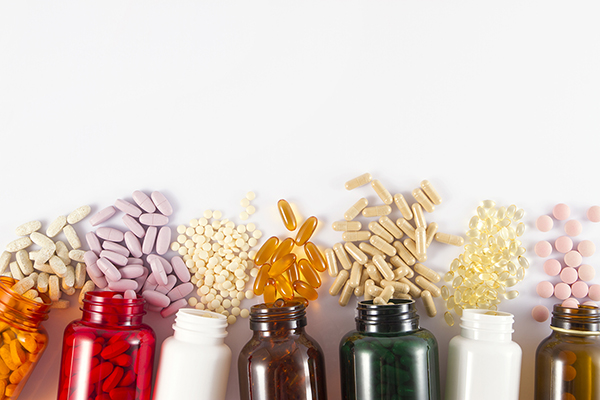




Q: What are the most important supplements to take for people on a budget?
A: This is a great question because most people are interested in taking supplements to maintain their health and longevity. While getting the best bang for your buck is desirable, quality trumps all. Make no mistake. I am not a fan of drugstore or big box store brands that may contain subpar, or even harmful ingredients. Would you like a helping of artificial colors with your multi? Probably not. You get what you pay for.
All supplements should be free of common allergens such as gluten, corn and dairy, and free of toxic preservatives and artificial colorings. Let’s take a look at the most important vitamins and micronutrients for healthy people on a budget:
1. Multivitamin: A good quality multivitamin should contain micronutrients in the appropriate doses as well as in the proper forms. A good example of this is vitamin E. Most multis contain d-alpha-tocopherol only, which is dangerous without the other tocopherols to balance it. Mixed tocopherols are recommended as the proper form of vitamin E to take.
I don’t recommend anyone take iron (most multis contain the RDA for iron) unless there is evidence of low ferritin levels or iron-deficiency anemia. This can only be determined by blood tests. In my opinion, a multivitamin should not contain iron because an accumulation of iron in the body can be toxic to the heart. Excess iron also feeds infections.
2. Fish oil: A good quality fish oil should be free of all toxicants and artificial preservatives. It should not be hydrogenated. It should also come from safe and sustainable sources.
3. Vitamin D: I’ve devoted an entire seminar to this important vitamin. The dosage of vitamin D depends on blood levels [25(OH)D is the test]. A typical dose is anywhere from 2,000 IU to 5,000 IU per day, sometimes higher. The most bioavailable form is vitamin D3 which is cholecalciferol, not D2 (ergocalciferol). Make sure there are no artificial fillers or preservatives.
4. Probiotic: Inoculating the gut with beneficial bacteria (microbiota) is powerful medicine. You want both lactobacillus and bifidobacterium species of probiotics. We are finding out that our microbiota is intimately associated with health and disease outcomes including conditions such as inflammatory bowel disease and even obesity and diabetes. And remember, greater than 70 percent of the immune system is in the gut. So take good care of it!
Next week, I’ll share with you the supplements I take. In the meantime, if you’d like to order from Dr. Hoffman’s list of curated, top-quality supplements, visit DrHoffmanStore.com.
To your health!
Leyla Muedin, MS, RD, CDN
Though we think of declining estrogen as the hallmark of menopause, it's actually common for…

Up to 12 percent of Americans have ulcers at some point in life. Peptic ulcers…
Gallbladder disease is a modern illness. An estimated 20 million Americans have gallbladder disease. The…

There’s more to GI health than whether or not to take an acid-blocker. All too…

In the latest attempt to remove “stigma” from medical terminology, liver specialists have come up…

Q: My husband’s high sensitivity C-reactive protein (hs-CRP) is 1.62 and his homocysteine is 13.1. If…

Banish the Bloat: Leyla Weighs In with Tips and Insights

Our virtual voicemail is open 24/7, so there's no need to wait to submit your questions for Dr. Hoffman. Leave a message, and you may hear your question featured on the Intelligent Medicine radio program!